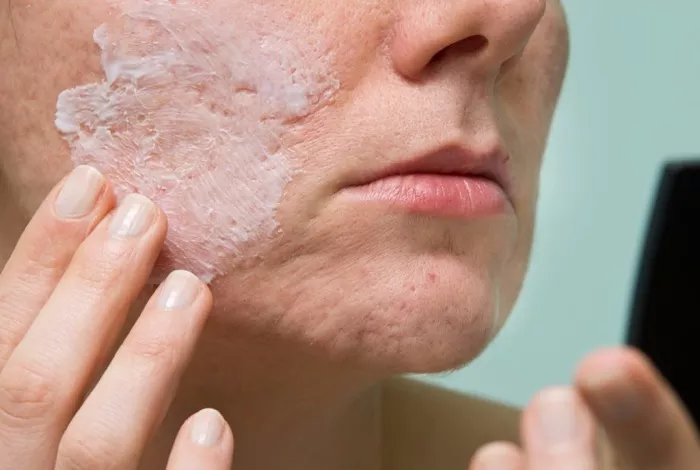Obsessive-Compulsive Disorder (OCD) is a mental health condition characterized by recurring thoughts (obsessions) and repetitive behaviors (compulsions) that individuals feel driven to perform. While the exact cause of OCD is not fully understood, researchers believe that a combination of genetic, neurological, and environmental factors may contribute to the development of the disorder. In this article, we’ll delve into the psychological causes of OCD, exploring the intricate workings of the mind and shedding light on the factors that may contribute to the onset and persistence of this challenging condition.
Understanding Obsessive-Compulsive Disorder
Before diving into the psychological causes of OCD, it’s essential to have a basic understanding of the disorder itself. OCD is a complex mental health condition that affects millions of people worldwide. It manifests in a variety of ways, with individuals experiencing a wide range of obsessions and compulsions.
Obsessions are intrusive, unwanted thoughts, images, or urges that cause significant distress and anxiety. These obsessions often center around themes such as cleanliness, safety, symmetry, or harm. Common obsessions may include fears of contamination, concerns about causing harm to oneself or others, or a need for order and symmetry.
Compulsions, on the other hand, are repetitive behaviors or mental acts that individuals feel compelled to perform in response to their obsessions. These compulsions are intended to alleviate the anxiety or discomfort associated with the obsessions temporarily. Common compulsions may include repetitive hand-washing, checking locks or appliances repeatedly, counting, or arranging items in a specific order.
Psychological Causes of OCD
While the exact cause of OCD remains unknown, researchers have identified several psychological factors that may contribute to the development and maintenance of the disorder:
Cognitive Factors: Cognitive theories of OCD suggest that faulty beliefs, perceptions, and thought patterns play a significant role in the development of the disorder. Individuals with OCD often experience cognitive distortions, such as catastrophic thinking, overestimation of threat, and perfectionism. These distorted beliefs can fuel obsessions and compulsions, leading to a vicious cycle of anxiety and ritualistic behaviors.
Learning Theory: According to learning theory, OCD may develop as a result of conditioning and reinforcement processes. For example, if an individual experiences temporary relief from anxiety after performing a compulsive behavior, they may be more likely to repeat that behavior in the future. Over time, this pattern of reinforcement can strengthen the association between obsessions and compulsions, leading to the persistence of OCD symptoms.
Family Environment: Research suggests that family environment and upbringing may also play a role in the development of OCD. Children who grow up in families where there is an emphasis on cleanliness, orderliness, or strict adherence to rules may be more likely to develop OCD symptoms later in life. Additionally, individuals who have a family history of OCD or other anxiety disorders may be at increased risk for developing the condition themselves.
Stress and Trauma: Stressful life events, trauma, and significant life changes can trigger or exacerbate OCD symptoms in susceptible individuals. Traumatic experiences, such as physical or emotional abuse, accidents, or loss of a loved one, can disrupt the normal functioning of the brain and increase vulnerability to anxiety and obsessive thinking. Additionally, chronic stress or ongoing life challenges may contribute to the maintenance of OCD symptoms over time.
Personality Traits: Certain personality traits, such as perfectionism, rigidity, and the need for control, have been associated with an increased risk of developing OCD. Individuals who possess these traits may be more prone to experiencing intrusive thoughts and anxiety and may be more likely to engage in compulsive behaviors as a way of coping with their distress.
Neurobiological Factors: While psychological factors are undoubtedly important in the development of OCD, research has also identified neurobiological abnormalities that may contribute to the disorder. Dysfunction in specific areas of the brain, particularly those involved in the regulation of fear, anxiety, and impulse control, has been implicated in the pathophysiology of OCD. Imbalances in neurotransmitters such as serotonin, dopamine, and glutamate may also play a role in the development and maintenance of OCD symptoms.
Treatment and Management
Understanding the psychological causes of OCD is essential for developing effective treatment strategies that address the underlying factors contributing to the disorder. While OCD can be a challenging condition to manage, a variety of therapeutic approaches have been shown to be effective in reducing symptoms and improving quality of life for individuals with OCD. These approaches may include:
Cognitive-Behavioral Therapy (CBT): CBT is the gold standard treatment for OCD and involves identifying and challenging maladaptive thought patterns and behaviors. Exposure and Response Prevention (ERP), a specific form of CBT, is particularly effective in helping individuals gradually confront their fears and reduce compulsive behaviors.
Medication: Selective serotonin reuptake inhibitors (SSRIs) are the most commonly prescribed medications for OCD and work by increasing the levels of serotonin in the brain. SSRIs can help reduce the frequency and intensity of obsessions and compulsions in many individuals with OCD.
Mindfulness and Acceptance-Based Therapies: Mindfulness-based therapies, such as Mindfulness-Based Cognitive Therapy (MBCT) and Acceptance and Commitment Therapy (ACT), can help individuals with OCD learn to accept and tolerate their intrusive thoughts and uncomfortable feelings without engaging in compulsive behaviors.
Support Groups: Support groups and peer-led programs can provide valuable support and encouragement for individuals with OCD. Connecting with others who understand their experiences can help individuals feel less alone and isolated and provide practical tips and strategies for managing symptoms.
Lifestyle Changes: Adopting healthy lifestyle habits, such as regular exercise, adequate sleep, stress management techniques, and a balanced diet, can also support overall mental health and reduce symptoms of OCD.
In Conclusion
While the exact cause of OCD remains elusive, psychological factors undoubtedly play a significant role in the development and maintenance of the disorder. Understanding the intricate interplay between cognitive, learning, environmental, and neurobiological factors can help clinicians develop targeted treatment strategies that address the underlying causes of OCD and improve outcomes for individuals living with the condition. By addressing the psychological causes of OCD through evidence-based treatments and interventions, individuals can learn to manage their symptoms effectively and lead fulfilling lives despite the challenges posed by the disorder.
[inline_related_posts title=”You Might Be Interested In” title_align=”left” style=”list” number=”6″ align=”none” ids=”6584,6578,6574″ by=”categories” orderby=”rand” order=”DESC” hide_thumb=”no” thumb_right=”no” views=”no” date=”yes” grid_columns=”2″ post_type=”” tax=””]

































